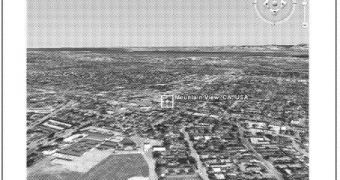Google Maps is about to get some smoother and more feature-rich navigational controls, according to a patent application uncovered by Go Rumors. The application details a patent filing for an “Embedded Navigation Interface” for Google Maps. It describes fine-grained controls for rotating, zooming and 360 degree movement. It’s an interesting patent filing and reveals some of the ideas Google has planned for Maps, but haven’t been implemented yet.
“A navigation interface is embedded in imagery and includes various controls for manipulating the imagery. The controls provide various navigation operations, including but not limited to: rotation, tilt, zoom and 360 degree,” the patent application’s abstract reads.
“Having the navigation controls located at a different location in the UI than the imagery can consume screen space which could be otherwise used for providing additional UI functionality, advertising and the like. Moreover, having the navigation controls separate from the imagery can force the user to take their eyes off the imagery while navigating,” explains some of the reasoning behind the choices.
Most of the controls center on navigating in 360 degrees and rotating the map imagery. However, standard Google Maps views have no need for this type of controls. The Satellite View provides a fixed point of view that places all the imagery on the same plane. As such, just the bi-dimensional navigation controls, i.e. pan and rotation, are enough. Currently, Google Maps enables users to pan the image but not rotate it.
However, with the introduction of the Aerial View, which is starting to be available in more and more cities, other controls are becoming necessary. What’s more, the new Earth View offers a 3D perspective so all of the controls described in the patent should prove useful. Note though that Google’s engineers move much faster than the US Patent and Trademark Office, so patent applications may not relate strictly to any one solution adopted by Google, but rather to ideas that may or may not be implemented in their original form, or at all.

 14 DAY TRIAL //
14 DAY TRIAL //